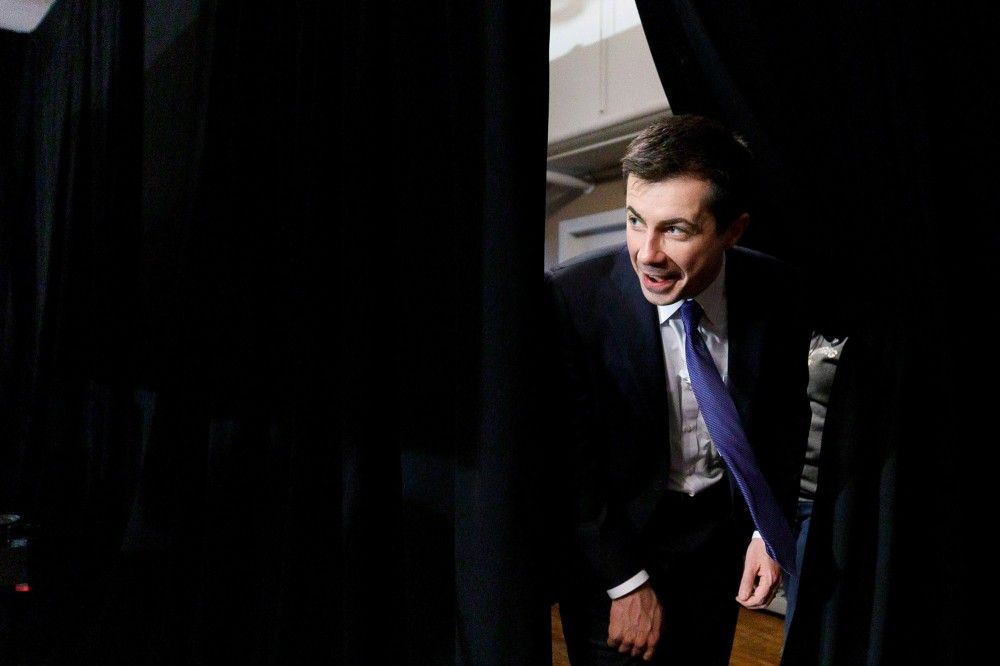
Popular Vote Proponent Pete Buttigieg Claims Victory in State Where Another Guy Got More Votes
For much of the presidential campaign, has championed the importance of the . In a town hall nearly a year ago, Buttigieg proclaimed: “One thing I believe is that in an American presidential election, the person who gets the most votes ought to be the person who wins.”
Yet after the Iowa caucuses, where clearly got thousands of more votes, Buttigieg has been trumpeting victory — on the basis of a metric that can subvert the popular vote, the state delegate haul from Iowa’s equivalent of the .
To be plain, the actual tally in Iowa seems to matter less to the Buttigieg campaign than building a perception of victory. On the night of the caucuses, long before any of the official tally had been reported, Buttigieg dubiously declared he had won:
Iowa, you have shocked the nation.
By all indications, we are going on to New Hampshire victorious. #IowaCaucuses
— Pete Buttigieg (@PeteButtigieg) February 4, 2020
After days of failed technology and counting chaos, the Iowa Democratic Party has now released 100 percent of the state results. The current tally shows Buttigieg trailing Sanders by 2,631 votes, yet leading by 2 “state delegate equivalents” — a margin of 0.1 percent on that metric. Yet the official tally includes many documented and uncorrected errors and what the state party deems “inconsistencies in data.” The Associated Press has refused to call the election, and Democratic party chair Tom Perez has demanded a “recanvass” or recount. Despite the tenuousness of these results, the Buttigieg website now proclaims: “It’s official: Pete won the Iowa Caucuses!”
Rolling Stone asked the Buttigieg campaign if they saw any contradiction in their candidate claiming victory, while losing on the metric Buttigieg has argued should count. The campaign responded with an embrace of Iowa’s arcane process, highlighting that “the nominee is selected by delegates” and that “SDEs determine delegates.”
Buttigieg has built his campaign promising less sweeping change than some of his rivals. He wants Medicare for All (Who Want It) and Free College for All (Who Earn Less than $100,000). But one area where Buttigieg has been consistently bold is calling for the abolition of the electoral college, which has frequently the elevated popular vote loser to victory in presidential elections, as it did in the case of Donald Trump in 2016.
Buttigieg has underscored that this disconnect between voter preference and election results is a threat to our values: “If we can’t come together with everybody having an equal vote over who the leader of our country is going to be,” he said in a March 2019 town hall, “how can we say that we’re a democratic society?”
“At risk of sounding a little simplistic, one thing I believe is that in an American Presidential election, the person who gets the most votes ought to be the person who wins.” #CNNTownHall #PeteforAmerica pic.twitter.com/L2KCeyqMDO
— Pete Buttigieg (@PeteButtigieg) March 11, 2019
Buttigieg has called for the abolition of the national electoral college, either by constitutional amendment or (as a workaround) by state compact. The campaign says he still believes in this goal but needs to get elected to enact a change in policy. On his website the campaign writes: “It’s simple: the candidate who gets the most votes should win.”
Citing this same simple metric, Sanders also declared himself the victor in Iowa yesterday.
The contradictions of the Buttigieg campaign’s claimed win in Iowa are reflected in the Democratic Party’s process, more broadly. The party presents itself as the champion those who need childcare, of hourly wage earners, and of the voting rights of the disenfranchised, yet it continues to structure its nominating process around caucuses that prevent many parents, shift-workers, and voters of color from being able to participate. Since 2000, the party has lost two popular-vote-winning candidates to the vagaries of the electoral college, yet it continues to privilege a delegate-based nominating process that undermines the principle of one person one vote, and even reserves a role for party-insider “super delegates” to decide on the nominee in a contested convention.
The party would do well to restructure its nominating process around a “crazy” idea promoted by a young now-former mayor from South Bend, Indiana: “Make it so the candidate with the most votes actually wins.”



